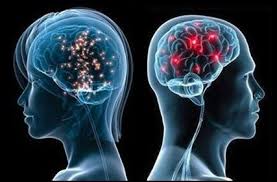Is lucid dreaming dangerous? There is no definite answer to this question. Some researchers qualify LD for sleep disorders. Others argue that lucid dreaming is a proven way of nightmares that don’t cause health problems. Does lucid dreaming really have no side effects? Who should not use techniques to induce lucid sleep?
Is lucid sleep dangerous?
His supporters argue that lucid dreams can be used to improve psychophysical health. Control over one’s own sleep is most often used to combat nightmares, as well as a tool for self-discovery, development of creative abilities, as well as for entertainment.
Lucid dreaming: what side effects can lucid dreaming have?

Until now, there has been no case of the negative impact of lucid sleep on physical and mental health. However, sceptics emphasize that if the technique of inducing sleep is poorly selected, side effects may occur, e.g. fatigue and sleeplessness, and in extreme cases, brain disorders may occur.
Isolated cases of lucid dreaming are harmless. However, if lucid dreaming occurs too often, it may indicate a hormonal disorder or an imbalance in the cerebrospinal fluid.
Other problems that Lucid Dream can cause are sleep and awakening disorders. This can cause night-time spectra, i.e. a half-sleep state in which the dreamer wakes up and experiences the effect of sleep hallucinations (the layer of sleep overlaps the layer of reality).
Then stop using lucid sleep techniques.
Who should not use techniques to induce lucid sleep?
Inducing lucid sleep is not recommended for people with cardiovascular problems. However, if they decide to do so, they should be careful of causing situations in their sleep that could cause a heart attack.
Lucid Dream should also be given up by people with mental health problems, e.g. schizophrenics, who may not see the difference between waking and sleeping. This is a very dangerous situation, especially since most schizophrenia patients do not know they are sick. A lucid dream is also advised against people whose family has schizophrenia.







